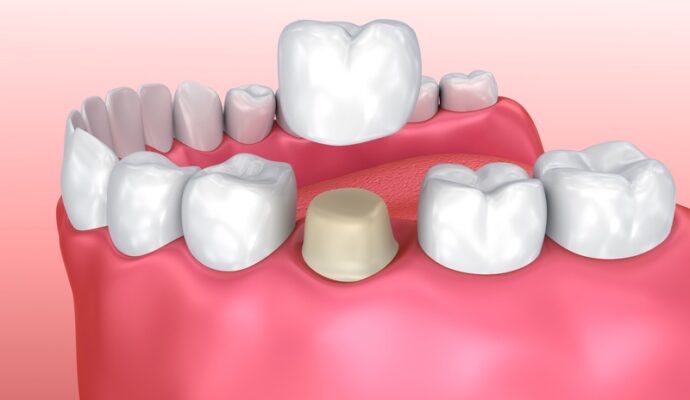Choosing the right dental treatment can be a daunting task, especially when you’re not sure what you need. It’s important to start with a clear understanding of your dental health. Are you dealing with pain, a chipped tooth, or discoloration? Identifying your exact problem is the first step towards finding an effective solution. Consulting with a dental professional can help you understand your needs better and establish a treatment plan.
1. Assessing Your Dental Health
You can perform a basic self-assessment of your dental health by looking for common issues such as tooth sensitivity, bleeding gums, or persistent bad breath. Noting these problems will be useful when you discuss your concerns with a dentist. Regular checkups are vital because some dental issues can go unnoticed until they’re at an advanced stage.
2. Creating a Treatment Plan
Once your dental needs are identified, the next step is to create a comprehensive treatment plan. This plan should address immediate concerns and include preventive measures to avoid future problems. Having a detailed strategy not only gives you a clear path but also helps you budget and schedule appointments.
3. Exploring Your Treatment Options
The world of dentistry offers a variety of treatment options, ranging from routine cleanings to advanced restorative and cosmetic procedures. The key is to match the treatment to your specific needs. Understanding what each treatment entails can significantly simplify this decision-making process.
Basic Treatments and Maintenance
For those who maintain regular dental hygiene but want to ensure they’re covering all bases, treatments like routine cleanings, fluoride applications, and sealants are essential. These are preventive measures aimed at keeping your teeth healthy. Basic dental services can also include addressing cavities or providing fillings, which are common yet crucial treatments.
Advanced Dental Procedures
If you’re experiencing more severe dental issues, advanced procedures such as root canals, crowns, or even dentures might be necessary. Each of these treatments has a specific purpose, such as saving a decayed tooth or restoring your ability to chew properly.
Cosmetic Dentistry
For those looking to enhance their smile, cosmetic dentistry can give you the boost you need. These procedures focus on aesthetics, offering solutions like teeth whitening, veneers, and bonding. While cosmetic treatments mainly improve appearance, they can also contribute to your overall dental health.
4. Consulting with Professionals
A crucial step in selecting the appropriate dental treatment is consulting with skilled dental health professionals. Their expertise can guide you through the options available and help you make informed decisions.
Finding the Right Dentist
When searching for a dentist, consider their specialization, years of experience, and patient reviews. It’s important to feel comfortable and trust their recommendations. A good dental provider will listen to your concerns, provide a clear explanation of your options, and detail the pros and cons of each.
Seeking a Specialist
When considering dental treatments, it’s essential to consult professionals who can provide the highest level of care for your specific needs. Sometimes, your treatment might require the expertise of a specialist. For instance, if you’re looking for implant placement by an oral surgeon in Normandy Park, WA, you’ll want to ensure that your primary dentist can facilitate referrals to trusted professionals who specialize in such procedures. Having a network of reliable specialists can significantly enhance the quality and success of your dental care plan.
5. Budgeting for Dental Treatments
Dental treatments can vary significantly in cost, so it’s important to be financially prepared. Understanding the cost implications of different treatments will help you manage your finances more effectively.
Insurance and Payment Plans
Start by reviewing your dental insurance policy, as coverage can greatly vary. Many dental offices offer flexible payment plans to assist those with limited insurance benefits. Discussing payment options upfront can alleviate any financial stress related to treatment.
Weighing the Cost
Savvy budgeting isn’t just about saving money but weighing the long-term benefits of certain treatments. Though initially expensive, some treatments may prevent more costly procedures down the line. Always consider the potential health benefits and how they may impact your quality of life.
6. Evaluating the Success of Treatments
Understanding the success rates and potential outcomes of treatments is another aspect to consider when choosing a dental treatment. Knowing what to expect can influence your decision.
Researching Outcomes
Read case studies or patient testimonials to grasp what a typical outcome looks like. While everyone’s experience is slightly different, this research can give you a better idea of what to anticipate.
Communicating with Your Dentist
Have honest discussions with your dentist about your expectations. They are there to guide you and provide realistic projections based on your situation. Good communication fosters trust and ensures that you are aligned with the treatment plan.
7. Considering the Recovery Process
Recovery time and post-treatment care are important factors to consider. Some procedures require longer recovery periods and have specific care instructions to follow.
Post-treatment Care
Understand what is required after treatment to ensure a successful recovery. This might include specific dietary restrictions, medication, and how to manage potential discomfort. Knowing this can help you arrange your schedule and be prepared for any changes to your daily routine.
Support System
Depending on the procedure, having a support system in place can be beneficial. Arranging help from family or friends for transportation or daily tasks can make the recovery process smoother.
8. Staying Informed
The dental field is constantly evolving with new technologies and methodologies. Staying informed about these advancements can be beneficial as they may offer improved treatment options.
Participating in Dental Health Seminars
Many communities offer dental health awareness seminars that keep you updated on the latest treatments and preventive care tips. These can often provide insight into innovative practices that could be suitable for your needs.
Following Dental Journals
For more in-depth information, consider following reputable dental journals. These publications often feature studies on new treatments and their efficacy, providing a wealth of knowledge for those interested in taking a more academic approach to their dental health.
Making the Final Decision
After gathering all the necessary information, it’s time to make the final decision regarding your treatment. Trust your instincts and prioritize your health above all else. With thorough research and good communication with your dental team, you can confidently choose the best dental treatment for your needs.
Remember, making informed decisions about your dental care can have lasting impacts on your overall health and well-being. Whether you’re considering Seattle tooth implants or other dental options, keep in mind all the factors that come into play to ensure you’re choosing the best path forward.
Wrapping It Up
Choosing the right dental treatment is key to your oral health journey. By assessing your needs, exploring options, consulting professionals, and budgeting, you ensure the best care possible. Stay informed and prioritize communication with your dental team. Your oral health impacts your overall well-being, so make informed, confident decisions for a brighter, healthier smile. Trust your instincts and prioritize your health.




